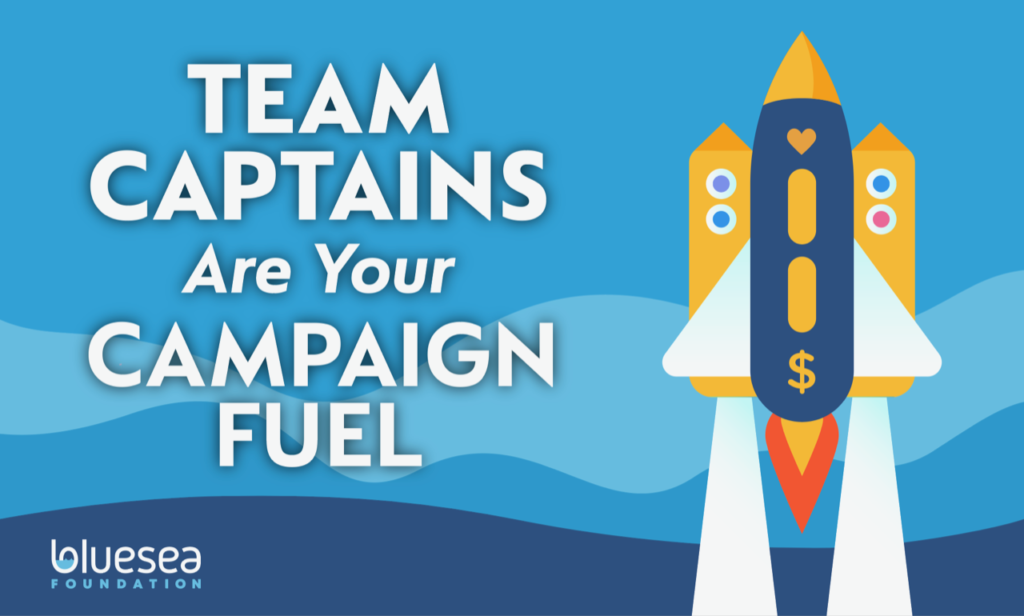
When Blue Sea first began we didn’t understand how important team captains were to the success of a P2P Fundraising event. We spent a lot of time trying to recruit hundreds of individual participants (which was both expensive and exhausting) when all we really needed were a couple dozen team captains.
Why? Because if you get these leaders, you’ll get their followers, and if you get their followers you’ll get their donors. It’s that simple.
That’s the power of team captains in peer-to-peer fundraising. They are the leading indicator of your success as long as you recruit them properly with clear expectations to:
- Lead their team energetically
- Recruit 7+ friends and families successfully
- Make fundraising a priority for themselves and their team
Recruiting Team Captains
So what’s the best way to recruit team captains?
- Start by tasking everyone on your team to ask 3 people they know well to be a team captain.
- Ensure they understand how their personal and team fundraising will impact both your charity and the lives of the people you serve.
- Connect their fundraising to your mission. Explain what you do, why it matters and how it’s making a difference in your community.
- This is the fuel your captains need to remain focused and motivated during the campaign.
1000% Worth It
Is it worth it? Absolutely – the average team captain recruits 6-7 team members and raises $1,500-$2,000. That’s average but many raise well above that level. Imagine recruiting 15, 20, or 40 of them? Do the math – that quickly gets your event up to the $25k, $40k or $100k level. And better still, team captains who are well cared for and appreciated by you during (and after!) the event will come back year after year because they enjoyed the experience of leading their team and fundraising for your charity.
So yes, team captains are worth it. They are 24 carat gold. They’re your campaign fuel. Your number one campaign strategy should be recruiting and encouraging them throughout the campaign.
Key Takeaway: Successful campaigns recruit 25% of their team captains in the first 30 days, 50% in the next 30 days and 25% in the final month.
